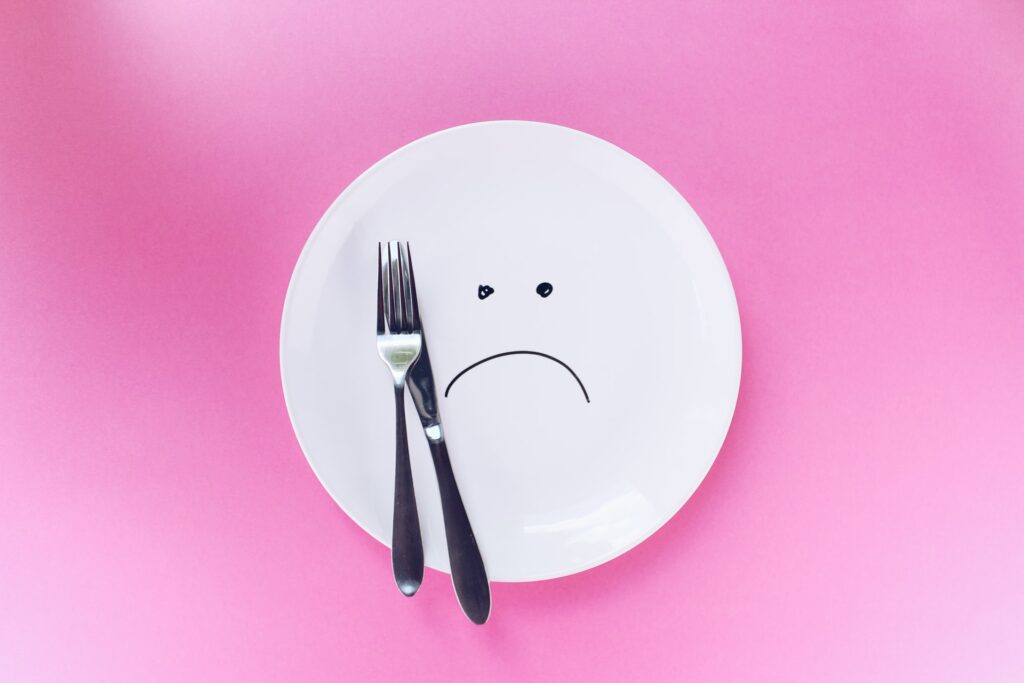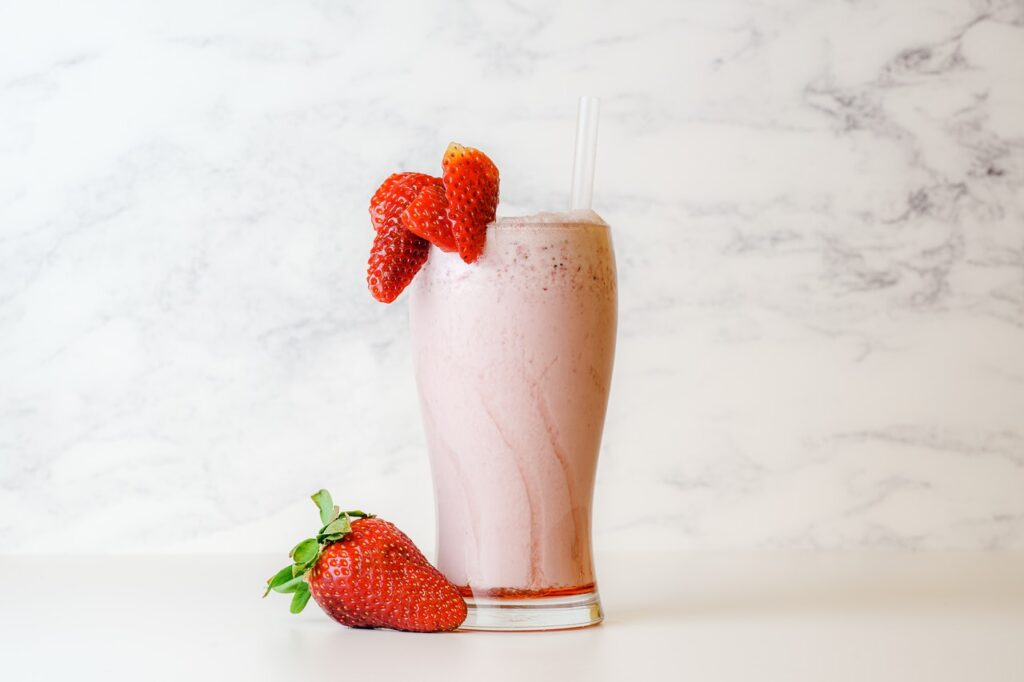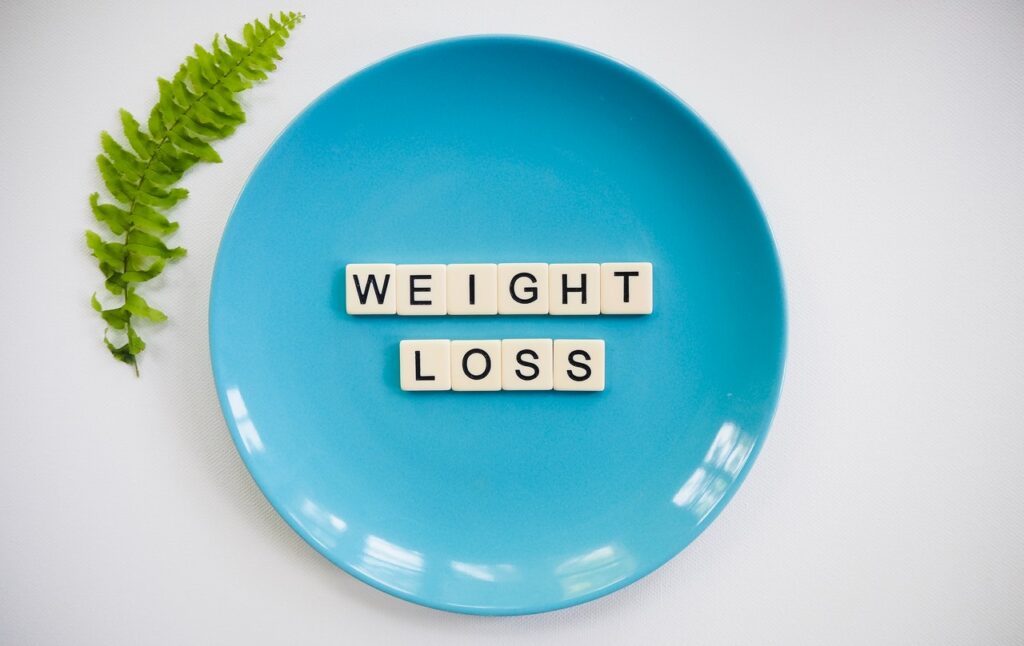Did you know that dieting messes with our body’s biology?
Sadly, it is true. There are a number of ways that going on a diet actually makes it harder to maintain a healthy weight?
So before you try another “diet” or even a reasonable effort at “lifestyle change” (this is in quotes because I tried to call my diets “lifestyle change efforts” for years, but I still had a diet mentality), please read this post.
The Ways Dieting Messes Things Up

There are two significant ways dieting messes with our biology and our body’s natural ability to regulate our weight.
- The dieting mindset itself, even before your weight changes an ounce can influence our hormones to work against us. Yes you heard this right, our mindset, separate from anything else like what we actually consume, influences our hormones. This can be true even if your weight does not change.
- Our bodies also fight significant weight loss, especially when it occurs quickly (to be clear, we are talking about weight loss without bariatric surgery, although if someone tries to “diet down” below where their body’s biology wants to settle after surgery this can also have a similar effect). Read on to learn about how the bodies of the Biggest Loser participants were impacted.
Dieting mindset versus indulgent mindset
Let’s talk about how your mindset can impact your hormones.
In a randomized study (the best kind for determining true cause), researchers had participants drink two milkshakes that were nutritionally identical. That is, all participants drank milkshakes with 380 calories, but the milkshakes were labeled different depending on which group you were in (Crum et al., 2011).
- One group had milkshakes labeled Sensishake with a (false) nutrition label saying the milkshake had 140 calories.
- The other group ate milkshakes labeled indulgent, and the nutrition label said it had 620 calories.
Then they measured ghrelin levels over time, which is a hormone that tends to rise when we are hungry, and fall after we have eaten.
What do you think happened to their “hunger hormone’ after each group had the exact same 380 calorie shake?

The people in the indulgent shake group had a ghrelin drop that was 3 times higher than the Senishake group (the diet mindset group), who had relatively flat ghrelin levels even though they consumed the exact same thing. People who had the Sensishake (the diet shake) also reported feeling less satisfied after their shake but because we measured their hormone levels, we know this wasn’t just “in their head.”
More Reasons to Ditch Dieting
This is crucial to understand, because it shows that believing you are eating something with low calories, whether or not you are, can actually make your body respond as if you ate something low calorie. Therefore, you are likely to feel less satisfied and get hungrier sooner.
If this doesn’t make the case against diet food products and any lifestyle changes with a dieting mindset, I’m not sure what does.
What About When Dieting Leads to Weight Loss?

As I have discussed in the past, the statistics on weight loss maintenance after large weight losses are not good. One of the main reasons this is the case, is not “lack of willpower” but the fact that our bodies are designed to fight rapid and significant weight loss, and they do so quite well.
From an evolutionary perspective, weight loss was a threat to our health and needed to be stopped. So your body is actually just doing what it was designed to. Obviously, with our food environment, this mechanism is no longer helpful, but nonetheless, it is there.
There are a number of studies that have shown this across a variety of biological mechanisms. Unfortunately, after weight loss, we see the following biological adaptations which explain some of why weight loss maintenance is very difficult:
- Reduced resting metabolic rate (people burn less calories at rest, much below that which would be expected at that weight; Rosenbaum et al., 2008; Knuth et al., 2014).
- So for example, if a 40 year old woman who is 5’5” and 150 lbs with 18% body fat burns 2000 calories per day, another woman with the exact same characteristics but who has previously weighed 200 lbs will burn significantly less than 2000 calories per day.
- Therefore, it is much harder for the second woman to stay at 150 lbs than the woman who has always weighed 150 lbs.
- Increased ghrelin, a hormone that is associated with increased feelings of hunger (Hansen et al., 2002)
- Reduced leptin, a hormone associated with feelings of fullness or satisfaction (Hansen et al., 2002)
The Biggest Loser Studies
Studies of Biggest Loser contestants demonstrates these effects well due to the dramatic weight losses seen in these individuals.
The study compared individuals who went through the Biggest Loser competition and to people who went through gastric bypass surgery.
After 7 months, both groups had lost a similar amount of weight:
- Participants who had Gastric Bypass surgery lost 88 lbs (40 kg)
- The Biggest Loser Contestant group lost 108 lbs (49 kg)
Despite the fact that the Biggest Loser contestants lost a lot less fat free mass (most likely due to increased muscle mass due to their extreme levels of exercise), they burned significantly less calories per day compared those gastric bypass patients who were at a similar weight (Knuth et al., 2014).
Based on their age and body size, participants should have burned about 2275 calories per day, if they hadn’t lost any weight before. However, their bodies after weight loss were burning 1856 calories per day, meaning they burned 419 calories less per day compared to if they had never gained and lost that weight (Knuth et al., 2014).
Does it get better over time?
Unfortunately, there isn’t much research to suggest this gets better over time, and it may even get worse, which would help to explain why so many people regain weight plus more after a restrictive dieting attempt.
When the 16 contestants from the study above were measured 6 years later, although most had regained weight and therefore had a larger body size (which should mean they burned more calories on a daily basis), their metabolic rate (amount of calories they burned in a day) was the same even after some weight regain.
So again, even though based on their body size they should have burned about 2400 calories per day instead of the 2275 noted previously (based on the 7 month assessment), they were still only burning around 1900 calories per day (Fothergil et al., 2016). This represents a reduction of about 500 calories less calories per day that they are burning, compared to if they had never gained and lost the weight.
What does this all mean?
So lets recap what we have learned from this post and previous posts on dieting. We have learned that restriction backfires. It hijacks our mind and our “self control resources” and makes us feel that we don’t have willpower when really we are using it up on things that aren’t working, and harming us in the process.
Dieting and restriction also messes with our biology and makes us feel less satisfied after eating, and reduces our metabolism, possibly permanently. Even if it can be reversed (we would need really good studies to answer this), why make it harder on ourselves if we don’t have to.
So is long-term weight loss possible?

The short answer? Yes, but the current ways we go about it are unlikely to get you there.
There is a subset of people who lose a significant amount of weight without surgery and keep it off. These people are studied in the National Weight Control Registry. Interesting, there are data to suggest that the longer people keep weight off, the less perceived effort it is and the more likely they will keep it off (Klem et al., 2000; Thomas et al., 2014).
You will notice that all the studies noted above studied weight loss efforts that would truly fall into the category of “dieting” in that they were intentionally restricting calories with a goal to get the number on the scale to move down, often at a pretty rapid pace.
There are absolutely people who lose weight and keep it off, so we have evidence that it’s absolutely possible. But it is rare, so what does that say about our methods as a whole? They need to be changed.
If the ways we diet now mess up our biology, it’s important to make sure we are feeding ourselves in a way that does not feel restrictive. If your goal is truly your health, then making habit changes like eating a balanced diet and moving regularly will greatly improve this, even if the scale does not budge.
Progress in terms of significant body changes might be slower, and while I realize that isn’t the most exciting thing, focusing less on dieting and the number on the scale and more on the things that truly matter in life can be hugely exciting.
5 Ways to Stop Hijacking Your Body’s Biology and Work with Instead of Against it

- Focus on habit changes that you can realistically make. Consider focusing your efforts on changes like meal planning and prep that will help you and your family be healthier, and put the scales away. Focus on how the changes make you feel and know that each time you make and prepare a balanced meal for yourself and/or your family, you’ve done something great, regardless of what the number of the scale does.
- Attend to hunger and satisfaction. Not to external rules for an amount of food that is “right” for you. One great way to do this is to download this FREE guide which gets you started on this for just 3 days, and might make the difference in your relationship with food and your body.
- Make sure you are actively involved in activities that provide a sense of relaxation. Chronic unaddressed stress can drive up hunger, and no one needs that. Make sure you are doing what you can to get adequate quality sleep, and that you are regularly doing things that help you de-stress and unwind. This could be as simple as listening to music, journaling, prayer, exercise, or spending time with loved ones.
- Make your food environment as helpful as possible. The more stressed and tired we are, the more we are quick to grab high sugar foods which make us feel worse and then crave more sugar. Go grocery shopping with a list when you aren’t hungry and plan to have lots of quick and easy options available for yourself. Make the healthy choice the easy choice. Pre-cut veggie tray anyone? Make it easier on yourself, but make these changes from a place of self-respect and self-care, not deprivation.
- Find ways to move that feel good. There is evidence that exercise can counteract some of the biological challenges with weight regulation noted above. Not to mention, there are a million other reasons to exercise that have nothing to do with weight loss.
References
Crum, A. J., Corbin, W. R., Brownell, K. D., & Salovey, P. (2011). Mind over milkshakes: mindsets, not just nutrients, determine ghrelin response. Health Psychology, 30, 424-429.
Crum, A. J., & Langer, E. J. (2007). Mind-set matters: Exercise and the placebo effect. Psychological Science ,18, 165-171.
Fothergil et al., (2016). Persistent Metabolic Adaptation 6 Years After “The Biggest Loser” Competition. Obesity.
Hansen et al., (2002). Weight loss increases circulating levels of ghrelin in human obesity. Clinical Endocrinology, 56, 203-206.
Klem ML, Wing RR, Lang W, McGuire MT, Hill JO. (2000). Does weight loss maintenance become easier over time? Obesity research, 8, 438–44.
Knuth, N. D., Johannsen, D. L., Tamboli, R. A., Marks-Shulman, P. A., Huizenga, R. et al. (2014). Metabolic adaptation following massive weight loss is related to the degree of energy imbalance and changes in circulating leptin. Obesity, 22, 2563–2569.
Rosenbaum et al., (2008). Long-term persistence of adaptive thermogenesis in subjects who have maintained a reduced body weight. The American Journal of Clinical Nutrition, 88, 906–912.
Thomas, G. Bond, D. S., Phelan, S., Hill, J. O., Wing, R. R. (2014). Weight-Loss Maintenance for 10 Years in the National Weight Control Registry. American Journal of Preventive Medicine, 46, 17-23.
